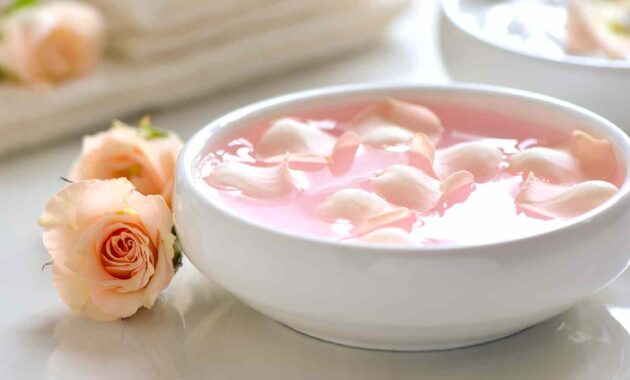One of the most popular home remedies is using rose water for skin. It is most commonly used as a natural skin toner. Many believe in the flower power as rose water soothes the skin and also removes dirt and grime from the pores. But sometimes it can harm your skin, especially if you get too experimental and try to mix it with other ingredients. While mixing rose water with glycerin might help those with dull and dry skin, there are some ingredients that you should not combine with rose water.
To find out all about rose water, Health Shots reached out Dr Jaishree Sharad, a popular cosmetic dermatologist, author, TEDx speaker and founder of Skinfiniti Aesthetic Skin and Laser Clinic in Mumbai.

What is rose water?
Rose water is basically an extract from rose petals that is obtained through steam distillation, explains Dr Sharad. One look at beauty stores, and you will find it packed and sold as an astringent, toner or refreshing mist. It is spreading its wings and making its spot in the face cream, serums and masks categories too.
How to use rose water?
To use rose water for skin, you just need a few drops of it on a cotton pad. Then wipe it all over your face after washing your face with a cleanser or a face wash. This will help to tone your face, something that is essential in a beauty routine. Since there are rose water mists too, just spray them on your face. You can even spray rose water after you are done with your make-up, suggests the expert. You just need to spray it on your face and then leave it on.
Bad combinations with rose water
Rose water is very mild on the skin. It doesn’t really do much harm because it doesn’t alter the potential hydrogen (pH), which refers to the acidity levels of skin. But it can upset your skin if you mix it with the following ingredients:
1. Rose water with essential oil
Dr Sharad says that she often sees people using rose water with essential oil. It may work for some, but if you are allergic to fragrance or if you have asthma, atopic dermatitis, your skin may react. So, avoid using rose water with essential oils.

2. Rose water with witch hazel
Witch hazel is a natural astringent, but the expert says when you combine it with rose water, it can at times, cause more dryness or skin irritation.
3. Rose water with baking soda
Baking soda is known for being a natural antiseptic and having antibacterial properties. If you apply it topically, it might help to reduce bacteria that is giving you acne problem. But do not use rose water with baking soda because that will alter the pH of your skin and make the skin more dry and sensitive.
4. Rose water with vinegar
Vinegar helps to lighten and prevent blemishes and acne, but using it with rose water means the pH of your skin getting altered.
5. Rose water with lemon juice
Lemon juice, rich in vitamin C is sometimes used in acne treatment. Dr Sharad says avoid using rose water with lime or lemon juice because this combination will disrupt the skin barrier by altering the pH of your skin.
Rose water in itself is great for skin, but try not to come up with your own home remedies. They might harm your skin more instead of leaving with glowing skin.
#Skin #care #ingredients #rose #water
